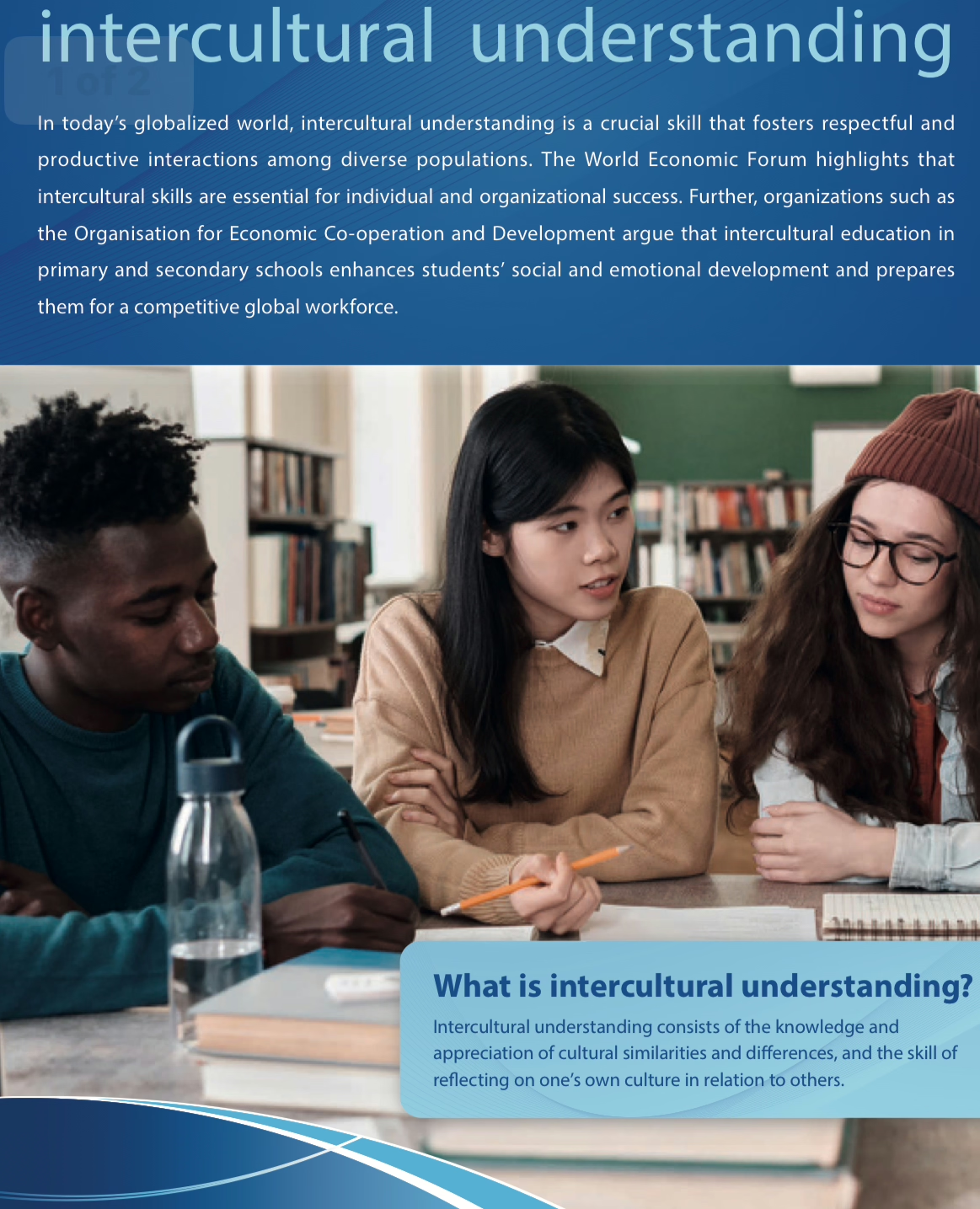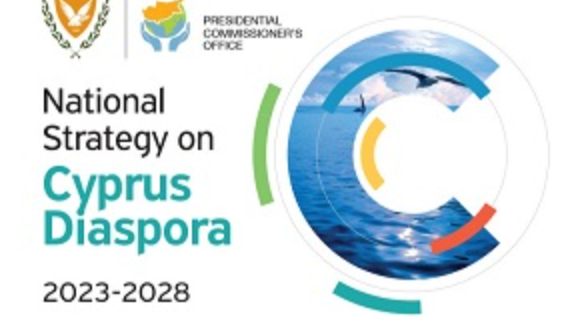What is intercultural understanding?
Intercultural understanding consists of the knowledge and appreciation of cultural similarities and differences, and the skill of reflecting on one’s own culture in relation to others. This understanding is a vital skill for navigating our diverse and interconnected world. At its core, it involves recognizing and respecting cultural differences, which can significantly impact personal and professional interactions. This understanding is not limited to specific academic subjects but is applicable across various real-life contexts.
Students develop intercultural understanding over time through exposure to different cultures, engagement in meaningful dialogues, and participation in activities that require collaboration with diverse groups. Educational approaches like service-learning, study abroad programs, foreign language learning, and the use of technology can significantly enhance this development by providing authentic experiences and practical applications.
Cultural factors deeply influence intercultural understanding, making it essential to consider diverse perspectives and contexts in education. Effective instructional strategies are crucial for fostering this understanding, although more research is needed to identify universally effective methods. Strategies such as project-based learning, reflection exercises, and interactive discussions can help students build empathy, adaptability, and global awareness.
Measuring intercultural understanding involves both direct and indirect methods, including projects, performance tasks, and self-reflection. These assessments ensure that students can demonstrate their intercultural competence in meaningful ways, preparing them for real-life challenges and opportunities.
Linking it to the IB
The International Baccalaureate (IB) curriculum is designed to develop intercultural understanding among students, preparing them to be globally aware and empathetic citizens. The IB emphasizes the importance of intercultural understanding through its core values and educational approaches. By integrating service-learning, study abroad programs, and foreign language learning into its curriculum, the IB provides students with opportunities to engage with diverse cultures and perspectives.
The IB’s focus on reflective practices and critical thinking further enhances students’ ability to understand and appreciate cultural differences. Through interdisciplinary projects and inquiry-based learning, students are encouraged to explore real-world issues from multiple perspectives, fostering a deeper understanding of intercultural dynamics.
By fostering intercultural understanding, the IB equips students with the skills they need to navigate an increasingly globalized world, promoting not just academic success but also personal growth and social cohesion. An IB education prepares students for the complexities of the modern world, cultivating a generation of empathetic, culturally aware individuals ready to thrive in a diverse and interconnected global community.
Intercultural understanding is essential in creating world leaders for several reasons:
1. Global Perspective: Leaders with intercultural understanding can view issues from multiple cultural perspectives, making them more adaptable and better equipped to navigate the complexities of a globalized world.
2. Effective Communication: Understanding different cultural norms and communication styles enables leaders to interact more effectively with diverse teams, stakeholders, and international partners, fostering collaboration and mutual respect.
3. Conflict Resolution: Leaders who appreciate cultural differences are better prepared to mediate conflicts and find solutions that respect all parties’ values and beliefs, promoting peace and cooperation.
4. Inclusive Leadership: Intercultural understanding helps leaders create inclusive environments where everyone feels valued and respected, enhancing team cohesion and driving innovation.
5. Empathy and Respect: By recognizing and valuing cultural diversity, leaders demonstrate empathy and respect, building trust and strong relationships with people from various backgrounds.
In summary, intercultural understanding equips future world leaders with the skills needed to foster global collaboration, navigate cultural complexities, and lead with empathy and inclusivity. These qualities are crucial for addressing the challenges and opportunities of an interconnected world.








